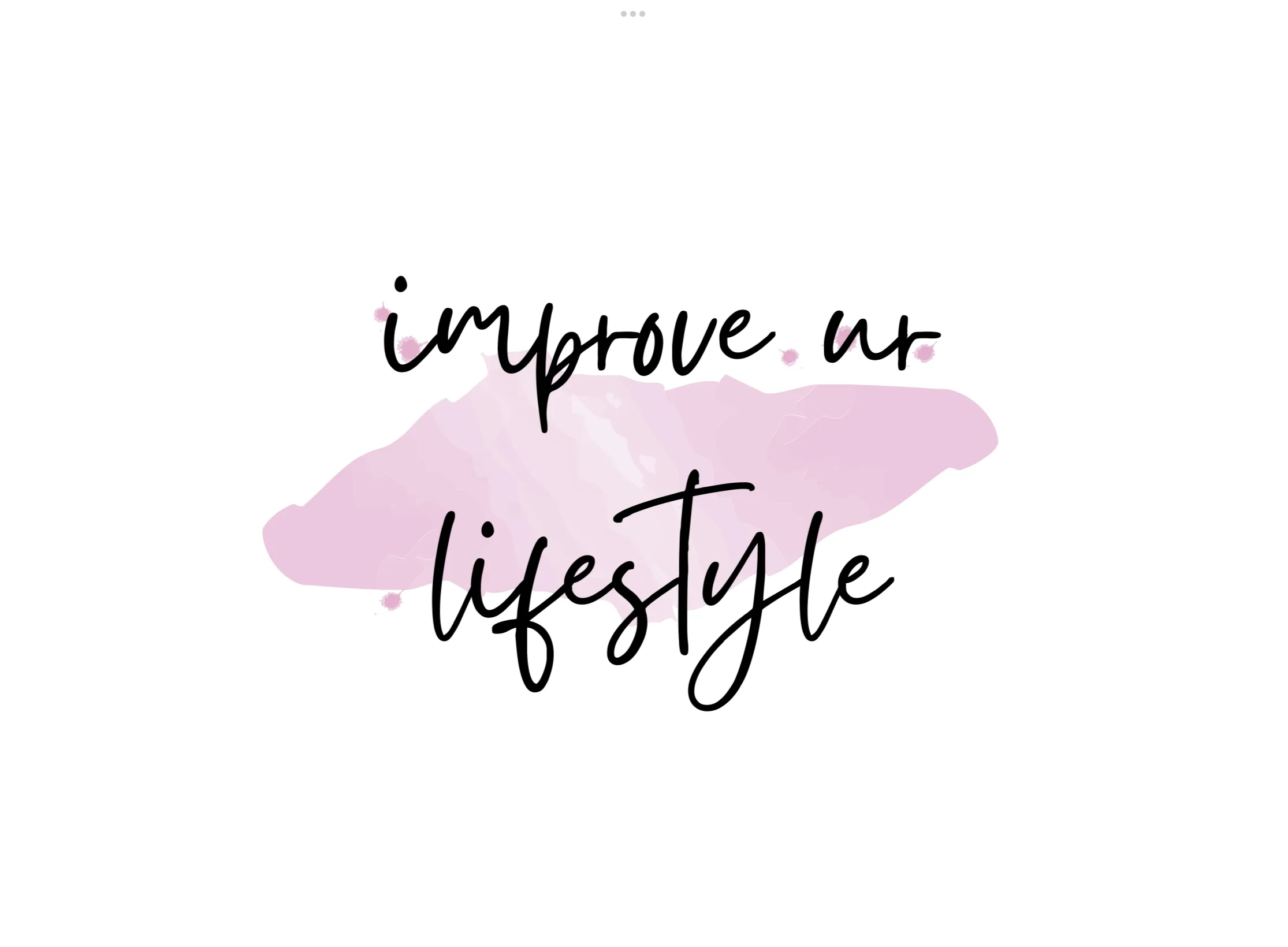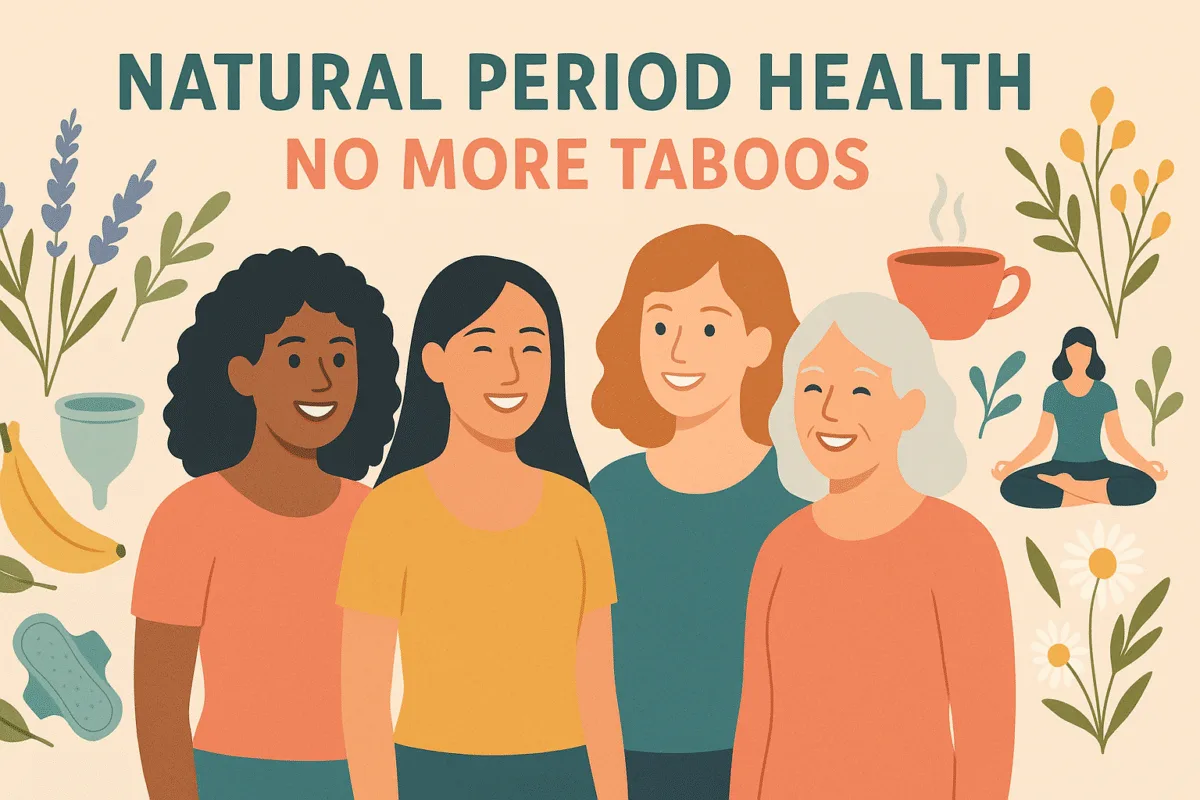Why Talking About Periods Matters
For years, periods have been a topic people avoid. Many women and girls grow up thinking that menstruation is something to hide or be ashamed of. But there’s nothing dirty or wrong about your period—it’s a healthy, normal part of life.
By opening up and learning more, we can take better care of ourselves and help others do the same. This article is here to break the taboos and show you natural, safe ways to support your body during your period.
What Is Menstrual Health?
Menstrual health means more than just getting your period every month. It also means:
- Having a regular and balanced cycle
- Managing period pain and PMS
- Keeping good hygiene
- Feeling emotionally and mentally okay
- Having access to clean products and the right information
A healthy menstrual cycle helps protect your fertility, hormones, and even your mood.
Common Period Problems
Many people face issues during their period, such as:
- Cramps or stomach pain
- Mood swings, sadness, or irritability
- Bloating or water retention
- Fatigue and low energy
- Irregular periods or skipped cycles
- Heavy or light bleeding
The good news is, there are natural ways to manage these symptoms and feel better without relying only on painkillers or staying silent.
Natural Solutions for a Healthier Period
Let’s look at some of the best natural ways to support your menstrual health:
1. Eat Foods That Help Your Body
What you eat during your cycle can make a big difference.
Best Foods to Eat:
- Leafy greens (like spinach): Full of iron and magnesium
- Bananas and avocados: Help with bloating and mood
- Whole grains (like oats and brown rice): Balance blood sugar
- Nuts and seeds (like flax and chia): Support hormone health
- Turmeric and ginger: Reduce inflammation and pain
Foods to Avoid:
- Caffeine (can cause anxiety and worsen cramps)
- Sugary snacks (can lead to mood swings)
- Salty junk food (causes bloating)
Eating well gives your body the strength and nutrients it needs during your period.
2. Use Herbal Remedies Safely
Many herbs have been used for centuries to ease period discomfort naturally.
Helpful Herbs:
- Chamomile Tea: Calms cramps and helps you sleep better
- Ginger Tea: Reduces nausea and bloating
- Cinnamon: Helps regulate heavy bleeding
- Vitex (Chasteberry): Supports hormonal balance (best used after speaking to a doctor)
- Turmeric: Acts as a natural pain reliever
These herbs are safe in small amounts, but always check with a doctor if you’re pregnant, breastfeeding, or taking other medicines.
3. Move Your Body Gently
You don’t need to do a hard workout during your period. But gentle movement can actually help reduce pain and improve your mood.
Try These Activities:
- Yoga: Especially poses like child’s pose or legs up the wall
- Stretching: Loosens tight muscles and reduces cramps
- Walking: Boosts your energy
- Swimming: Helps relieve joint pain and backaches
Don’t push yourself too hard—listen to your body. Even 10–15 minutes of light movement can help.
4. Support Your Mental and Emotional Health
Periods don’t just affect the body—they affect your emotions too. Many people feel more anxious, sad, or irritable before and during their cycle.
Ways to Feel Mentally Better:
- Journaling: Write down how you feel each day
- Meditation or deep breathing: Calms your mind
- Spending time in nature: Lifts your mood
- Talking to someone you trust: Share how you feel
Remember: You’re not alone. Mood changes are normal, and there’s nothing weak about asking for help.
5. Choose Healthier Period Products
Some store-bought pads and tampons contain chemicals, fragrances, and plastics that can irritate your skin or cause infections.
Healthier Options Include:
- Organic cotton pads or tampons
- Reusable menstrual cups (eco-friendly and cost-effective)
- Period underwear or cloth pads
Choosing safer, reusable products is good for your body—and the environment too!
Breaking the Taboo: Why We Need to Talk About Periods
Talking openly about menstruation helps everyone. It:
- Reduces shame and embarrassment
- Encourages young girls to speak up
- Helps people get better care and support
- Makes schools and workplaces more period-friendly
Let’s teach boys and girls from a young age that periods are normal and not something to be scared of or laugh at. This creates a kinder, more supportive society.
When to See a Doctor
Natural methods can help with most common symptoms, but it’s important to get medical advice if:
- You bleed very heavily (changing a pad every hour)
- You miss periods for 3+ months (and you’re not pregnant)
- You have extreme cramps that don’t improve
- You think you might have PCOS, endometriosis, or thyroid issues
Don’t ignore your symptoms. Listen to your body—and speak up if something feels wrong.
Final Thoughts: Periods Are Powerful, Not Shameful
Your period is a sign of strength, not weakness. With natural support, the right foods, healthy habits, and emotional care, you can feel better every month—and live without the fear or shame that society has placed around menstruation.
Let’s normalize the conversation, support each other, and celebrate our health without hiding it.

